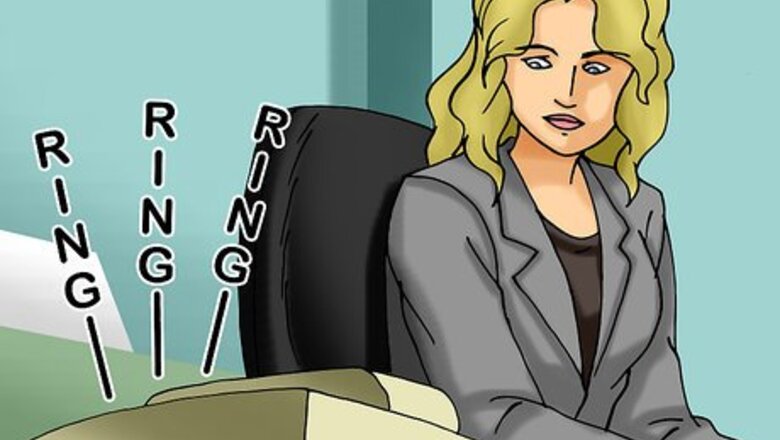
views
Professional Calls
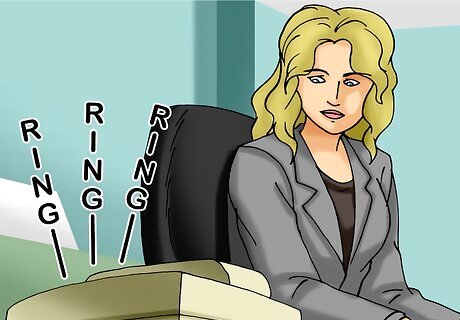
It is best to answer the phone after 2 or 3 rings. If you let it ring more than 3 times, the caller may become impatient and feel that their call is being ignored. On the other hand, if you pick up after the first ring, the caller may be taken by surprise by the quick answer. They may not have had enough time to formulate their thoughts.
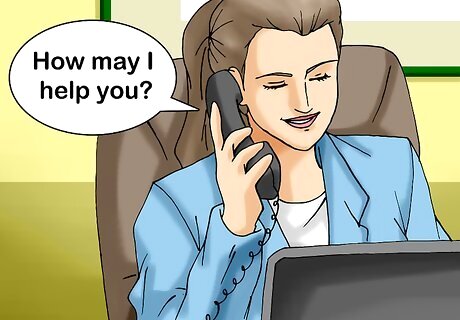
Prepare a professional greeting. When you’re answering the phone at your office, you won’t always know who is on the other end of the phone. It could be your boss, a customer, one of your colleagues, or even a wrong number. A professional greeting like “Good morning” or “How may I help you?” helps get the conversation off on the right foot. Even if you have caller ID and think it’s a work friend calling, someone could have borrowed their phone, you can never be too sure. Answering the phone with “Yeah, what?” might give callers the wrong impression of you.
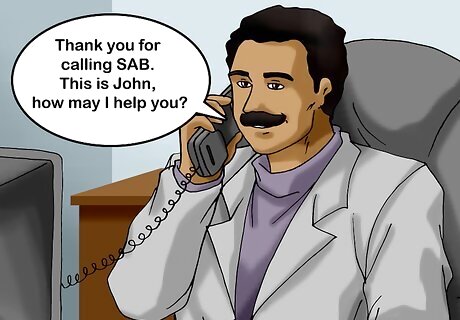
Identify yourself and your organization. In business situations, it’s most appropriate to answer the phone with your name and company. For example, say “Thank you for calling Smith’s Auto Body. This is Joan, how may I help you?” Many offices have their own script for answering the phone, so make sure you follow the rules your company has set out. If you're not sure of your company's phone scripting, ask your supervisor.
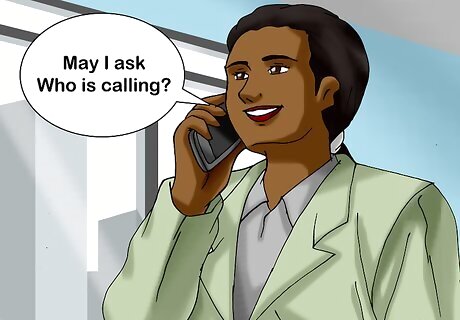
Nicely ask who’s calling if you don’t know. Often, the person will not only give you their name but also provide information about why they’re calling. If you don’t have Caller ID, didn’t recognize the number, or didn’t hear what the person on the other line said, prompt them again by saying “May I ask who’s calling?” Once the caller has introduced themselves, address the caller properly by the title they provide. If they say their first and last name, and you want to be more professional, call them by their last name.
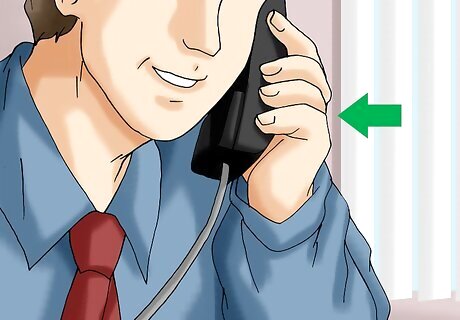
Speak directly into the mouthpiece. Don’t worry about putting the mouthpiece too close to your mouth or having to speak loudly. If the person you’re speaking to says they cannot hear you very well, you can speak a little louder. Otherwise, keep your voice at a normal conversational level.
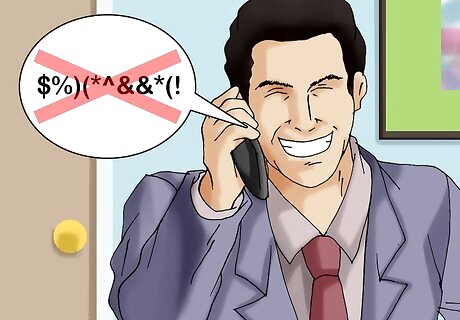
Avoid using slang or profane language. When you're answering the phone at work, you represent your company to whoever you're speaking with on the phone. Speak politely and avoid using slang, cursing, or bad language. Even if the conversation becomes heated and the person you're speaking with swears, maintain your composure and be polite. Of course, when you're speaking on your personal phone to friends, you can be informal with them and speak how you would in a face-to-face conversation.
Home Phone
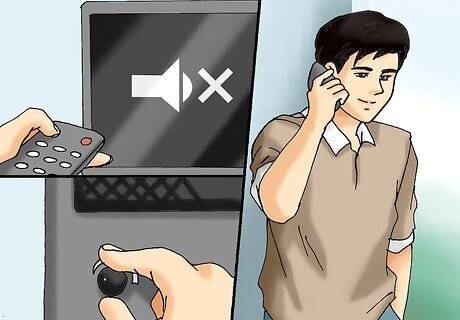
Answer in a quiet environment. If you’re in a loud environment, move somewhere quieter before answering the phone, or turn down the music or television before answering. You want to be in a place that’s quiet enough so that you can hear the person talking to you, and they can hear your responses. A quiet environment will also allow you to focus on the caller.
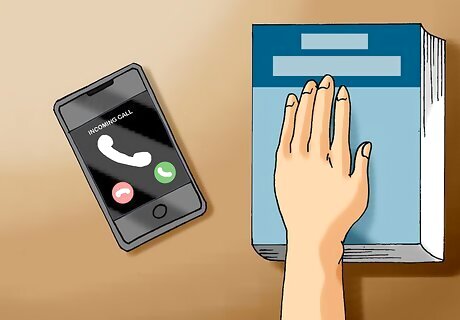
Stop your other tasks before answering the phone. Take a brief moment to collect your thoughts before answering. Don’t be distracted, as this could lead to miscommunication between you and the person you're speaking to. If you’re free from distractions, the person you're speaking to will feel that they have your full attention. For example, if you were typing on your computer or reading a book when the phone rang, stop these tasks and concentrate on the call.
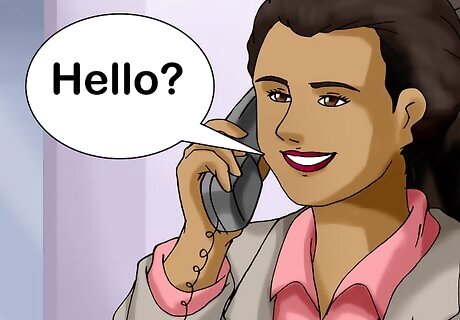
Say “Hello” and state your name in a pleasant tone of voice. If you don’t recognize the Caller ID or know who is calling, you can add “This is Sam.” For a more formal answer, you can say, for example “This is the Smiths’ residence.” If you saw on Caller ID that a friend or family member is calling, feel free to say something like, “Hi Tom! How are you today?”
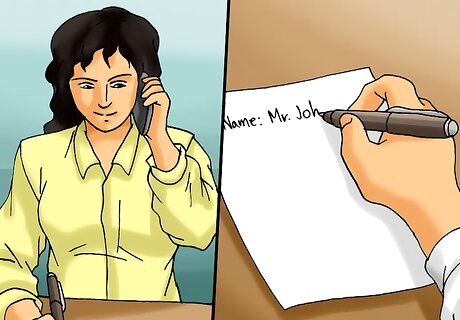
Take down the caller's info if the family member they’re trying to reach is unavailable. If the caller is trying to reach someone who is not home or is unavailable, say “I’m sorry, Mrs. Simpson, my father is not available right now. May I take a message?” Be sure to record the person’s name, phone number, and reason for calling on a notepad in clear, legible handwriting. If you don’t have a notepad nearby, ask the person on the other line to wait while you quickly go get one.
Cell Phone
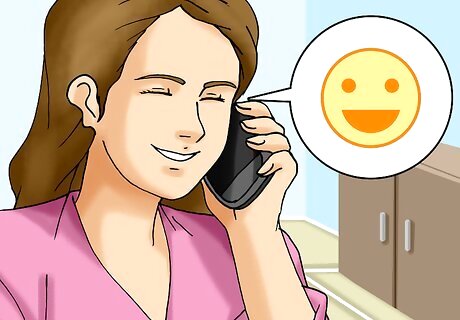
Greet the caller in a friendly tone. When answering a cell phone, Caller ID will typically indicate who is calling you. Say something like, “Hi Steve, how are you?” Even if the number is private or concealed, it’s important to answer the caller in a friendly way. Say, “Hello, may I ask who’s calling?” Since cell-phone calls tend to be more informal than calls to a business or land line, you don’t need to say your name when answering the call.
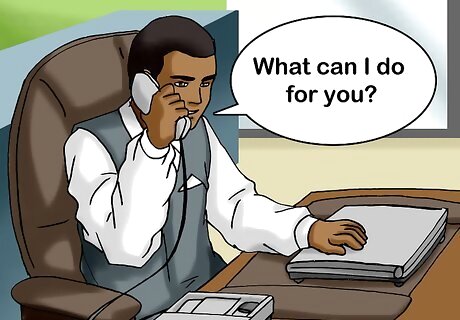
Ask why the person is calling. If you don’t know the person, be polite by saying “How can I help you today?” or “What can I do for you?” If you do know the person, you can say something like “What’s up?” Even if you know the caller, avoid answering rudely. Don’t say, “What?” or “What do you want this time?”
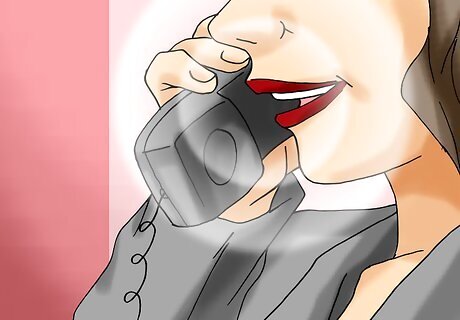
Speak clearly using your normal tone of voice. Don’t worry about shouting into the mouthpiece or over-enunciating your words. Instead, speak slowly and distinctly. If you're shouting or speaking unnaturally, the person you're speaking to may think you're angry or sick. If the person on the other end of the line sounds faint, turn up the volume on the side of your cell phone. If they're still faint, ask them to put the mouthpiece closer to their face.
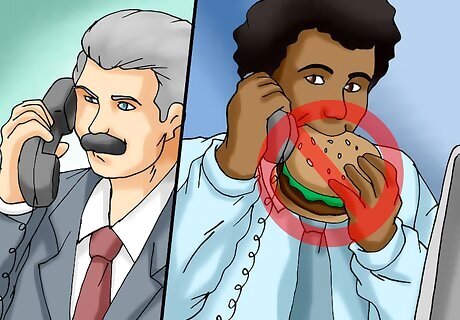
Don’t answer the phone while chewing gum or food. If you’re chewing gum or food, take the time before answering to spit it out or swallow it. You want your mouth to be clear and ready for conversation when you answer the phone. Even if you’re talking to a friend, they may have a hard time understanding you if you have a mouth full of food.
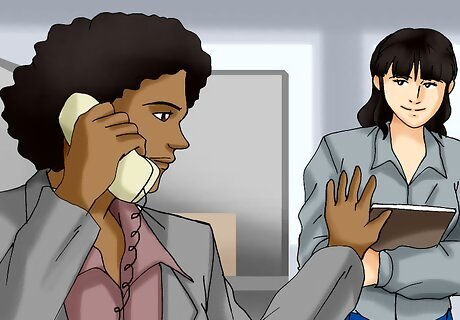
Don’t talk to people outside of the call until the call is over. For the duration of the phone call, ignore all outside distractions and give the person on the other side of the line your undivided attention. Don’t talk to or joke with other people, and avoid trying to communicate silently while also talking on the phone. Even if the person you're on the phone with can't hear the words you're saying to someone in person, they'll be able to tell that you're not focusing fully on the phone conversation.
















Comments
0 comment